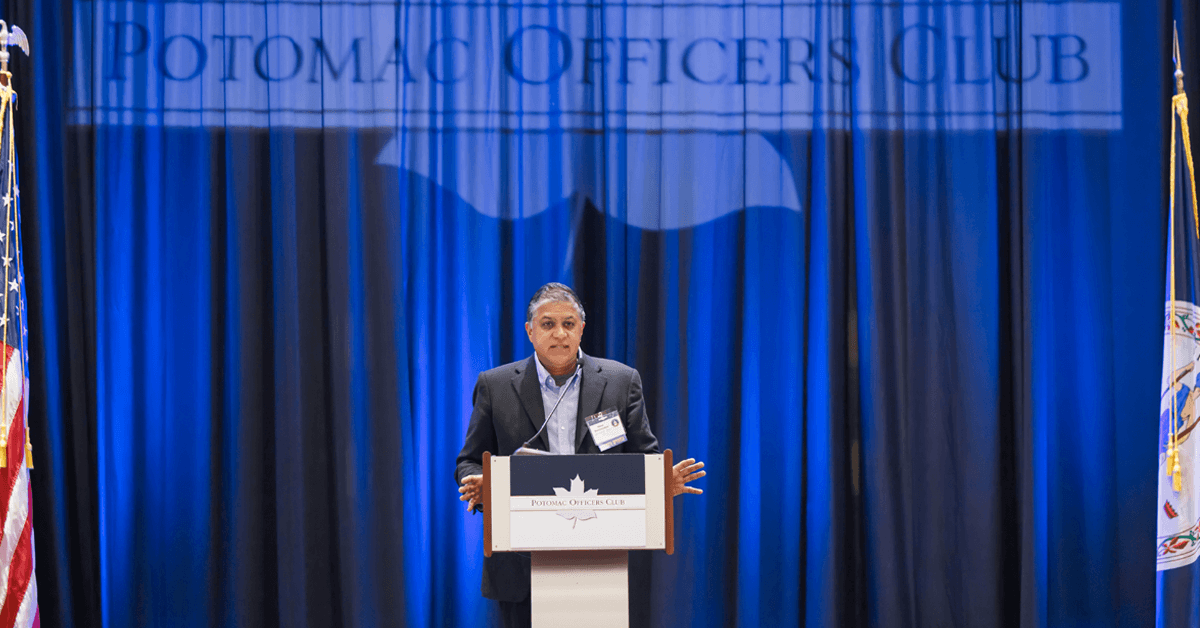World
CIA CTO Illuminates Challenges of a ‘Multipolar World’ – GovCon Wire

Nand Mulchandani addresses the Potomac Officers Club’s 2024 Intel Summit. Photo by Andrew Noh
In an era where people across the world have more access to advanced technology than ever before (and are often very fluent in it), we have reached a “democratization of tech,” according to Nand Mulchandani, chief technology officer at the CIA. Mulchandani told an audience of government contractors at the 2024 Intel Summit, from Potomac Officers Club, on Sept. 19, that this development has had seismic effects on geopolitical relations.
“When you take physical systems and effectively digitize them, you put them on a software commoditization curve. And there is no more aggressive curve out in the technology industry than a software commoditization curve,” Mulchandani said. “And of course, it is incredibly weaponized by the fact that chip and obviously AI and other powerful technologies lead into that in some way, creating basically a flywheel, which basically generates incredible benefits.”
Tech Challenges
But it also, the CIA CTO shared, engenders its share of challenges. Tech democratization has benefited everyone, but it has enabled the “smaller players” in the global sphere more than the superpowers. This is seen especially in cyber, where small, under-resourced countries are snatching asymmetric wins through targeted digital infiltrations.
Cyber is an area “where [the U.S.] should have a competitive advantage because of our skills, because of our capital. Our ability to throw money at the problem all of a sudden is highly blunted. We’re still ahead, but the margins actually shrink dramatically,” Mulchandani warned.
Mulchandani said that the military architecture of the U.S. is under attack because of such cyber aggressions, among other incursions. When CIA Director William Burns came to his post in 2021, Mulchandani said he determined that the agency, and the national security paradigm at large, needed to shift its focus to the great power competition — the testing of global strongholds like the U.S., China and Russia.
“At the end of the game, this is a battle for technology,” Mulchandani said of great power competition. “These [tech] companies themselves represent very, very large poles in this multipolar world. You have to actually deal with these large tech companies like actual sovereign states because they actually have a thumb on the scale of what happens in the world,” he revealed.

A Way Forward
So how does the U.S. equip itself in this complex fight? Drawing on his experience in Silicon Valley as an entrepreneur, Mulchandani cited the idea that very rarely do the same companies appear on a list of the most successful organizations from one decade to the next. Tides shift, operations run cold and become stagnant, and teams double down on the same strategies that brought them success before, despite the world having changed. This, the CIA official cautioned, was what the U.S. needs to do its best to avoid — a certain level of complacent incumbency that could cause the country to lose its footing or fall behind.
The American government should reorient its approach to tech and incorporate both the “quick sugar hits” of short-term, low-hanging-fruit solutions as well as look toward long-term investments in cutting edge tools with a flexible mindset.







